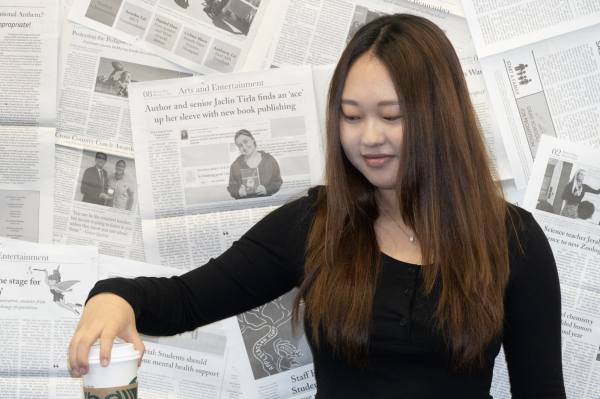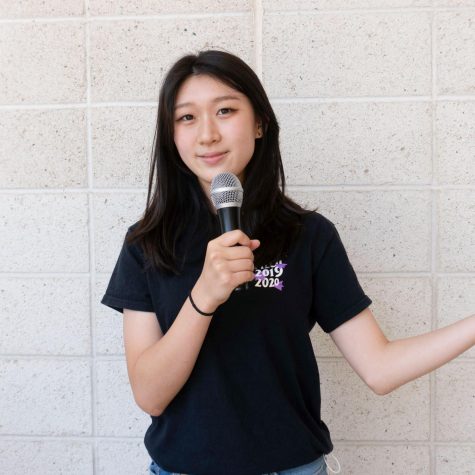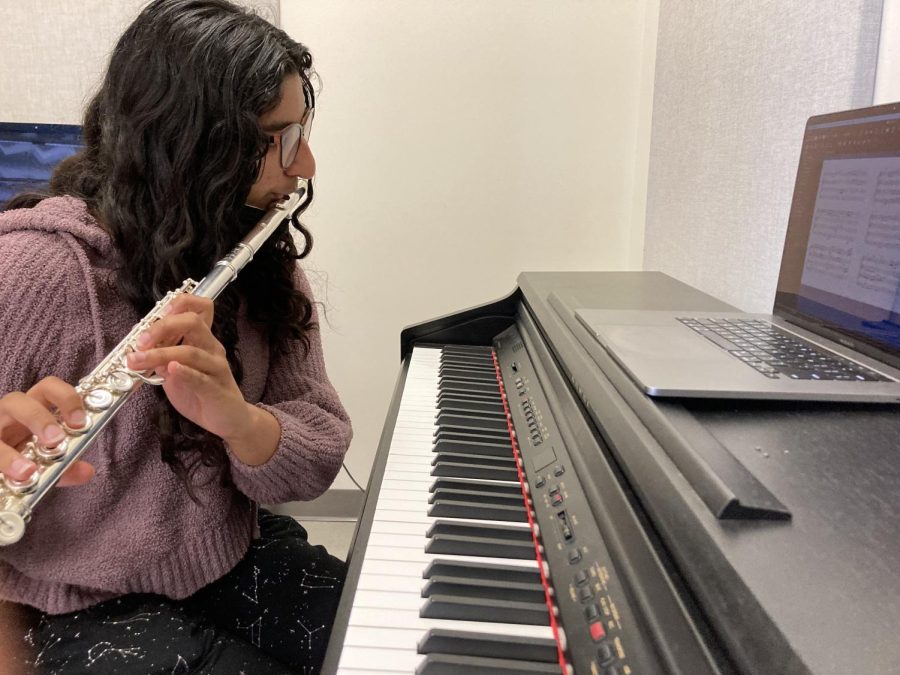Aarushi Shankar ‘Composes’ Her Life Through ‘bitterness’
For senior Aarushi Shankar, the flute provides many opportunities to create melodies and find out what she likes in her compositions. “I take my flute, and I start playing a melody. Then I work around things,” Shankhar said. “If I hear something that I like, I save that, and I write it in… Then I started working out like harmonies and chords. So that’s super helpful for me, because it’s a lot harder for me to just sing out like a melody.”
An atonal, polyphonical rigmarole consisting of eighth notes and subdivisible rhythm. Pentatonic and parallel scales running up and down the phrases. Clashes between melodies coming to a chord conclusion at various intervals.
Breaking the norms is what senior Aarushi Shankar is all about.
Born into a musical family, Shankar grew up trying many instruments, including the violin, viola, sitar, flute, trombone and mallet percussion. Of those instruments, only the flute and trombone stuck, and she continued to expand her musical palette by being a part of Portola Singers and theater.
However, Shankar’s musical journey did not stop there. She wanted to write original pieces and add her own twists to music.
“I’ve always been interested in writing pieces because I like creating a lot of different mediums,” Shankar said. “But then the problem that I had was I’d worry that I’d be copying from something, or I’d start creating something and turn into like, Oh, wait, that’s that song that I was thinking about. So I never really went too deep into it.”
Just weeks before the “Homeward Bound” concert in October 2020, choir teacher Adrian Rangel-Sanchez invited composer and songwriter Shawn Kirchner as a guest critic for the Portola Singers’ piece, “I’ll Be On My Way.” Upon meeting him, Shankar was inspired by Kirchner and embarked on her journey with musical composition.
“I asked him specifically, ‘How do you start your pieces?’ and ‘Do you get paranoid that it’s going to turn into something you already know?’” Shankar said. “He said he starts with a simple idea and then takes a small short phrase melody, which is just so short that it can’t come from anything, like random things, and then you move on from that, and he elaborated a lot on that. I really liked that idea.”
After looking back at her unfinished composed drafts, Shankar applied Kirchner’s advice to her own brainstorming process, ignoring the lingering thoughts of unoriginality that initially clouded her judgment. It was not until she was assigned a creative project in AP Literature in March that she was able to challenge herself and produce her first completed composition.
The assignment was to create an original piece that imitates author Toni Morrison’s usage of nonlinear structure and point of view in her 1987 novel “Beloved.” In order to model this, Shankar did what she thought would reflect the theme of family struggles best: break the rules of musical composition just as Morrison defied traditional methods of storytelling through irregular narrative techniques. She titled the song “bitterness.”
“I wanted to make it represent a dysfunctional family, which is what I felt was a really prevalent topic,” Shankar said. “And ‘Beloved’ has this family that’s struggling to be together but still somehow manages to stay, and there’s a lot of conflict, but they do end up coming back together at various intervals.”
No parallel octaves. Refrain from placing second inversions where they do not belong. Avoid being too atonal.
These were all conventional rules of musical composition that Shankar learned from taking AP Music Theory, so to model a broken family, Shankar broke these rules.
“I made each part a different person in the family,” Shankar said. “For me, it was an opportunity to give each part of the family a different voice, which made the messy polyphony really important. And it’s rough to hear sometimes, but it’s like all of these voices that are struggling to be heard.”
Thanks in part to Kirchner and his music compositions, Shankar found a way to express her feelings through a different universal medium: music.
“I am creating art. It’s really important to me, because it’s one of the main ways that I express what I’m feeling or what I’m going through,” Shankar said. “When it comes to composing, I feel like there’s a lot of rules, but there’s a lot of space for you to really do whatever you want and capture what kind of feeling you want and really make other people feel what you want them to feel.”
Your donation will support the student journalists of Portola High School. Your contribution will allow us to purchase equipment and cover our annual website hosting costs.

Kayleen Kim is the managing editor for her third and final year on the Portola Pilot. This year, she'll aim to make her final interactions with the team...

Claudia Lin is your co-editor-in-chief for her third year on the Pilot. She is looking forward to making as many memories as possible for her last year...

Bia Shok is the co-news editor for her third and final year on the Pilot! She is super excited to expand the Pilot’s influence even further this year...




